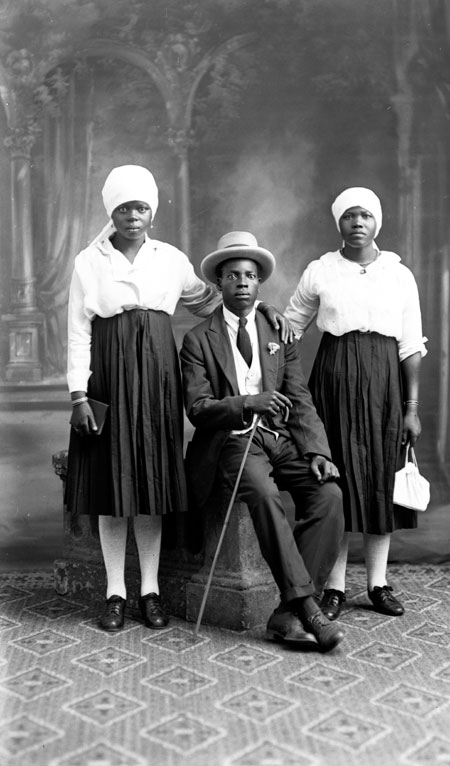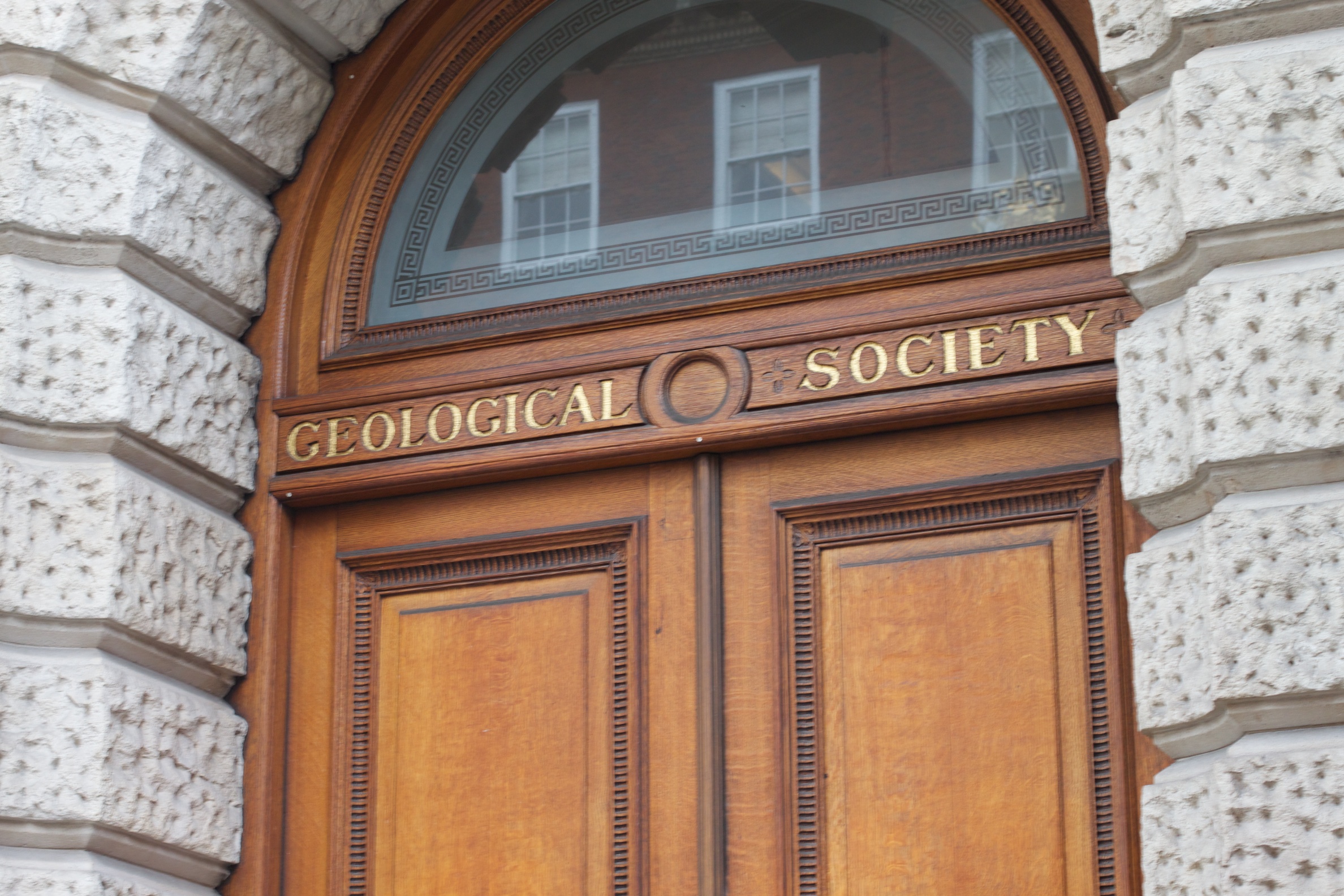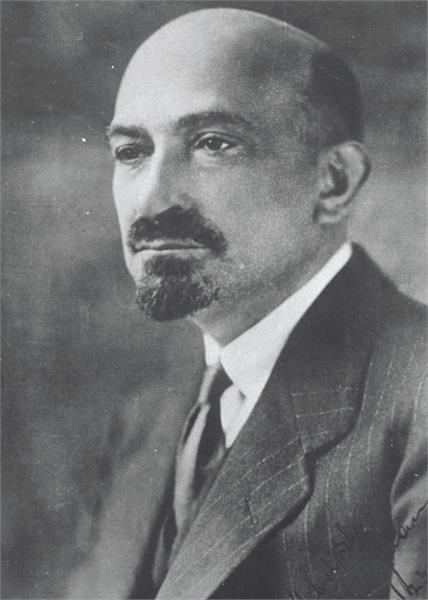|
Hugh Exton
Hugh Exton (26 March 1864 Cape Colony – 1955) was a South African self-taught photographer noted for creating more than 23000 glass slides during his career spanning 1892 to 1945, and preserved at the Hugh Exton Photographic Museum, a former Dutch Reformed church built in Pietersburg in the 1890s. He was the son of physician, anthropologist, geologist and collector, Hugh Exton (1833-1903) F.G.S., who was President of the South African Geological Society from its founding in 1895, and Jacomina Hendrina van der Poel. Exton moved north from Cape Town in 1886, visiting the Marabastad Goldfields near Pietersburg, eventually settling in the town in 1899. He photographed a wide variety of historic events, including the Anglo-Boer War, documenting ordinary people and celebrities in the dress of the period, the architecture of the time, as well as images of the local industry and trade. He kept meticulous notes in appointment books, recording the details of every photograph he ... [...More Info...] [...Related Items...] OR: [Wikipedia] [Google] [Baidu] |
Hugh Exton00
Hugh may refer to: * Hugh (given name) Noblemen and clergy French * Hugh the Great (died 956), Duke of the Franks * Hugh Magnus of France (1007–1025), co-King of France under his father, Robert II * Hugh, Duke of Alsace (died 895), modern-day France * Hugh of Austrasia (7th century), Mayor of the Palace of Austrasia * Hugh I, Count of Angoulême (1183–1249) * Hugh II, Count of Angoulême (1221–1250) * Hugh III, Count of Angoulême (13th century) * Hugh IV, Count of Angoulême (1259–1303) * Hugh, Bishop of Avranches (11th century), France * Hugh I, Count of Blois (died 1248) * Hugh II, Count of Blois (died 1307) * Hugh of Brienne (1240–1296), Count of the medieval French County of Brienne * Hugh, Duke of Burgundy (d. 952) * Hugh I, Duke of Burgundy (1057–1093) * Hugh II, Duke of Burgundy (1084–1143) * Hugh III, Duke of Burgundy (1142–1192) * Hugh IV, Duke of Burgundy (1213–1272) * Hugh V, Duke of Burgundy (1294–1315) * Hugh Capet (939–996), King of ... [...More Info...] [...Related Items...] OR: [Wikipedia] [Google] [Baidu] |
Cape Colony
The Cape Colony ( nl, Kaapkolonie), also known as the Cape of Good Hope, was a British colony in present-day South Africa named after the Cape of Good Hope, which existed from 1795 to 1802, and again from 1806 to 1910, when it united with three other colonies to form the Union of South Africa. The British colony was preceded by an earlier corporate colony that became an original Dutch colony of the same name, which was established in 1652 by the Dutch East India Company (VOC). The Cape was under VOC rule from 1652 to 1795 and under rule of the Napoleonic Batavia Republic from 1803 to 1806. The VOC lost the colony to Great Britain following the 1795 Battle of Muizenberg, but it was acceded to the Batavia Republic following the 1802 Treaty of Amiens. It was re-occupied by the British following the Battle of Blaauwberg in 1806, and British possession affirmed with the Anglo-Dutch Treaty of 1814. The Cape of Good Hope then remained in the British Empire, becoming self- ... [...More Info...] [...Related Items...] OR: [Wikipedia] [Google] [Baidu] |
Dutch Reformed
The Dutch Reformed Church (, abbreviated NHK) was the largest Christian denomination in the Netherlands from the onset of the Protestant Reformation in the 16th century until 1930. It was the original denomination of the Dutch Royal Family and the foremost Protestant denomination until 2004. It was the larger of the two major Reformed denominations, after the Reformed Churches in the Netherlands (''Gereformeerde kerk'') was founded in 1892. It spread to the United States, South Africa, Indonesia, Sri Lanka, Brazil, and various other world regions through Dutch colonization. Allegiance to the Dutch Reformed Church was a common feature among Dutch immigrant communities around the world and became a crucial part of Afrikaner nationalism in South Africa. The Dutch Reformed Church was founded in 1571 during the Protestant Reformation in the Calvinist tradition, being shaped theologically by John Calvin, but also other major Reformed theologians. The church was influenc ... [...More Info...] [...Related Items...] OR: [Wikipedia] [Google] [Baidu] |
Pietersburg
Polokwane (, meaning "Sanctuary" in Northern SothoPolokwane - The Heart of the Limpopo Province. City of Polokwane official website. Retrieved on October 15, 2009.), also known by its former name, Pietersburg, is a city and the capital of the Limpopo Province of . It is South Africa's largest urban centre north of . Polokwane was one of the host cities of the |
Fellow Of The Geological Society
The Geological Society of London, known commonly as the Geological Society, is a learned society based in the United Kingdom. It is the oldest national geological society in the world and the largest in Europe with more than 12,000 Fellows. Fellows are entitled to the postnominal FGS (Fellow of the Geological Society), over 2,000 of whom are Chartered Geologists (CGeol). The Society is a Registered Charity, No. 210161. It is also a member of the Science Council, and is licensed to award Chartered Scientist to qualifying members. The mission of the society is: "Making geologists acquainted with each other, stimulating their zeal, inducing them to adopt one nomenclature, facilitating the communication of new facts and ascertaining what is known in their science and what remains to be discovered". History The Society was founded on 13 November 1807 at the Freemasons' Tavern, Great Queen Street, in the Covent Garden district of London. It was partly the outcome of a previous ... [...More Info...] [...Related Items...] OR: [Wikipedia] [Google] [Baidu] |
Geological Society Of South Africa
The Geological Society of South Africa (GSSA) is a learned society for geological science that was founded in 1895, making it one of the oldest such societies in Africa. The GSSA publishes the peer-reviewed scientific journal, the ''South African Journal of Geology'', and annually awards the Draper Memorial Medal (in honour of David Draper) to recognise achievement in geology, and the Des Pretorius Memorial Award (in honour of Desmond Pretorius) to recognise exceptional work on economic geology in Africa. The GSSA collaborates internationally with other professional organizations such as the European Federation of Geologists (EFG). References External links Geological Society of South Africa website''South African Journal of Geology'' website South Africa South Africa, officially the Republic of South Africa (RSA), is the southernmost country in Africa. It is bounded to the south by of coastline that stretch along the South Atlantic and Indian Oceans; to the nort ... [...More Info...] [...Related Items...] OR: [Wikipedia] [Google] [Baidu] |
Eerstegoud
Eerstegoud is a village 14 km south-west of Polokwane. Laid out in 1868, it was first called ''Marabastad''. At the request of the inhabitants the name was changed about 1954 to Eerstegoud, Afrikaans for 'first gold', in memory of the discovery in 1871 of the first gold in the Transvaal Transvaal is a historical geographic term associated with land north of (''i.e.'', beyond) the Vaal River in South Africa. A number of states and administrative divisions have carried the name Transvaal. * South African Republic (1856–1902; af, ... at Eersteling by Edward Button. References Populated places in the Polokwane Local Municipality 1868 establishments in the South African Republic {{Limpopo-geo-stub ... [...More Info...] [...Related Items...] OR: [Wikipedia] [Google] [Baidu] |
Anglo-Boer War
The Second Boer War ( af, Tweede Vryheidsoorlog, , 11 October 189931 May 1902), also known as the Boer War, the Anglo–Boer War, or the South African War, was a conflict fought between the British Empire and the two Boer Republics (the South African Republic and the Orange Free State) over the Empire's influence in Southern Africa from 1899 to 1902. Following the discovery of gold deposits in the Boer republics, there was a large influx of "foreigners", mostly British from the Cape Colony. They were not permitted to have a vote, and were regarded as "unwelcome visitors", invaders, and they protested to the British authorities in the Cape. Negotiations failed and, in the opening stages of the war, the Boers launched successful attacks against British outposts before being pushed back by imperial reinforcements. Though the British swiftly occupied the Boer republics, numerous Boers refused to accept defeat and engaged in guerrilla warfare. Eventually, British scorched earth po ... [...More Info...] [...Related Items...] OR: [Wikipedia] [Google] [Baidu] |
Chaim Weizmann
Chaim Azriel Weizmann ( he, חיים עזריאל ויצמן ', russian: Хаим Евзорович Вейцман, ''Khaim Evzorovich Veytsman''; 27 November 1874 – 9 November 1952) was a Russian-born biochemist, Zionism, Zionist leader and Israeli statesman who served as president of the World Zionist Organization, Zionist Organization and later as the List of Presidents of Israel, first president of Israel. He was 1949 Israeli presidential election, elected on 16 February 1949, and served until his death in 1952. Weizmann was fundamental in obtaining the Balfour Declaration and later convincing the United States government United States-Israeli relations#Recognition of the state of Israel, to recognize the newly formed State of Israel. As a biochemist, Weizmann is considered to be the 'father' of industrial fermentation. He developed the acetone–butanol–ethanol fermentation process, which produces acetone, n-Butanol, n-butanol and ethanol through bacterial fermentati ... [...More Info...] [...Related Items...] OR: [Wikipedia] [Google] [Baidu] |
1864 Births
Events January–March * January 13 – American songwriter Stephen Foster (" Oh! Susanna", " Old Folks at Home") dies aged 37 in New York City, leaving a scrap of paper reading "Dear friends and gentle hearts". His parlor song "Beautiful Dreamer" is published in March. * January 16 – Denmark rejects an Austrian-Prussian ultimatum to repeal the Danish Constitution, which says that Schleswig-Holstein is part of Denmark. * January 21 – New Zealand Wars: The Tauranga campaign begins. * February – John Wisden publishes ''Wisden Cricketers' Almanack, The Cricketer's Almanack for the year 1864'' in England; it will go on to become the major annual cricket reference publication. * February 1 – Danish-Prussian War (Second Schleswig War): 57,000 Austrian and Prussian troops cross the Eider River into Denmark. * February 15 – Heineken N.V., Heineken brewery founded in Netherlands. * February 17 – American Civil War: The tiny Confederate ... [...More Info...] [...Related Items...] OR: [Wikipedia] [Google] [Baidu] |
1955 Deaths
Events January * January 3 – José Ramón Guizado becomes president of Panama. * January 17 – , the first Nuclear marine propulsion, nuclear-powered submarine, puts to sea for the first time, from Groton, Connecticut. * January 18–January 20, 20 – Battle of Yijiangshan Islands: The Chinese Communist People's Liberation Army seizes the islands from the Republic of China (Taiwan). * January 22 – In the United States, The Pentagon announces a plan to develop intercontinental ballistic missiles (ICBMs), armed with nuclear weapons. * January 23 – The Sutton Coldfield rail crash kills 17, near Birmingham, England. * January 25 – The Presidium of the Supreme Soviet of the Soviet Union announces the end of the war between the USSR and Germany, which began during World War II in 1941. * January 28 – The United States Congress authorizes President Dwight D. Eisenhower to use force to protect Taiwan, Formosa from the People's Republic of China. February * February ... [...More Info...] [...Related Items...] OR: [Wikipedia] [Google] [Baidu] |







